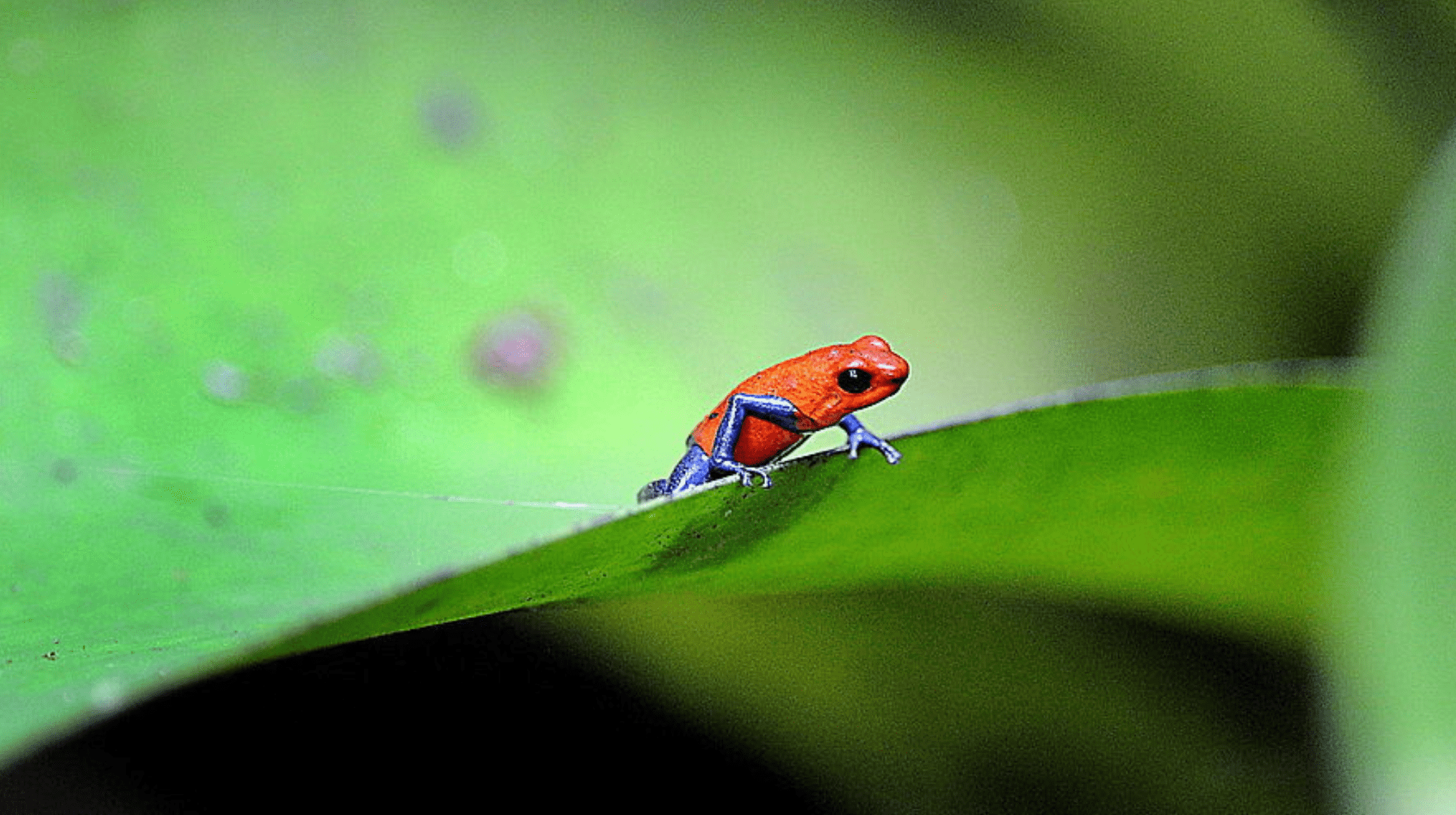Photograph of a poison dart frog taken in the Costa Rican rainforest, about 110 km northwest of San José, on April 5, 2010. (Yuri Cortez/AFP/Getty Images)
(CNN Spanish) --
By the 1940s, tropical forests covered much of Costa Rica's territory.
But then the loggers' chainsaws began to advance, in a quest for land to farm and raise cattle, and the lush trees lost more and more ground.
History moved in that direction for decades, and by the 1970s, Costa Rica had one of the highest deforestation rates in the world.
It could have continued like this, but the Ticos decided to make a 180-degree turn: starting in the 1990s they launched a program that makes them a world example.
The data to illustrate their successes accumulate in a long list.
Costa Rica is the only tropical country in the world that has managed to reverse deforestation.
And it did it in a relatively quick period.
In the early 1990s, 25% of the country's surface was covered by forests, while today the figure is over 50%.
In addition, 30% of the surface are national parks, with the benefits that this name entails.
And it's not just about this ecosystem: 99% of the energy used by Ticos is from renewable energies such as hydroelectric, geothermal and wind.
And to this is added a strong legal framework that prohibits, for example, the exploitation of gas and oil and open-pit mining.
Renewable energy has been one of the great bets of the Ticos, who have exceptional landscapes.
Here, a portrait of the La Perla waterfall at La Ponderosa Adventure Park in Guanacaste, Costa Rica, taken on August 22, 2020. (Credit: Ezequiel Becerra/AFP/Getty Images)
The secret of the success of the Ticos
There is no magic in the recipe for Costa Ricans to recover their magnificent forests.
There is a very specific program that brought together two key tools: laws and economic incentives.
In 1996, the country made the felling of forests illegal without the approval of the authorities and a year later introduced the Payment Program for Environmental Services (PPSA), which is a benchmark worldwide.
advertising
This is a State financial mechanism that makes direct payments to the owners and holders of forests and forest plantations for the environmental services they provide when they are well managed, as explained by the UN.
There are basically four services: mitigation of greenhouse gas emissions, protection of biodiversity, protection of water and beauty of the landscape.
The money for these payments comes mainly from a tax on fossil fuels, as well as other initiatives put in place by the State.
Three figures allow us to know the scope of the program: more than 18,000 families have benefited so far from the PPSA, which has had an investment of US$ 524 million and reached more than 13,000 square km (more than a quarter of the extension of the country). .
The program provides special conditions for indigenous territories, and it is estimated that close to 100,000 members of these populations benefit from its incentives.
Costa Rica is one of the megadiverse countries in the world.
Here, a blue morpho butterfly (Morpho menelaus) pictured in the jungle, some 110 km northwest of San José, on April 5, 2010. (Credit: Yuri Cortez/AFP/Getty Images)
And caring for the environment in Costa Rica —one of the 25 megadiverse countries on the planet and home to one of the largest numbers of species in absolute numbers— has had a positive impact on tourism, which today is a key source of income for the country.
The environment as a right
Last year, the UN General Assembly recognized living in a clean, healthy and sustainable environment as a human right.
This introduced a new perspective to the worldwide debate: respecting the environment is no longer a choice but an obligation, explains the WWF organization in its latest report Living Planet.
In Costa Rica, the right to a healthy environment has been contained in the Constitution since 1994.
Recognition of this right, says the organization, "has triggered stronger environmental legislation and policies, better implementation and enforcement, greater public participation and, most important of all, better environmental performance."
And he puts Costa Rica, and France, as the star examples.
Pura vida!: the human factor that distinguishes Costa Rica
Stewart Maginnis, world director of the nature-based solutions group of the International Union for Conservation of Nature (IUCN), explained to CNN that Costa Rica's "remarkable" process is also influenced by citizens' respect for nature. nature.
Costa Rica provides direct economic rewards for caring for the forests.
(Credit: Ezra Shaw/Getty Images)
"Pura vida!", the slogan that distinguishes the country —which, by the way, is also the happiest in Latin America according to the World Happiness Report— is much more than a greeting: it is also an attitude of gratitude and personal peace and with the environment that surrounds them.
These two simple but powerful words refer to well-being, according to former President Carlos Alvarado Quesada, which is partly linked to the decision of Costa Ricans to conserve the environment.
In other words: not to bet on extraction.

